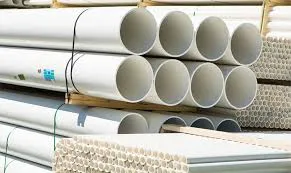Dec . 12, 2024 11:49 Back to list
pvc pipe used for service
Understanding the Use of PVC Pipe for Service Applications
Polyvinyl chloride (PVC) pipe has become a cornerstone in the construction and plumbing industries, prized for its durability, versatility, and cost-effectiveness. As the demand for reliable and efficient plumbing solutions continues to grow, understanding the role and advantages of PVC pipe in service applications becomes essential. This article explores the characteristics, benefits, and various applications of PVC pipe, along with considerations for its use.
Characteristics of PVC Pipe
PVC is a synthetic plastic polymer that offers a unique combination of properties making it suitable for a wide range of service applications. One of the most notable characteristics of PVC pipe is its excellent resistance to corrosion. Unlike traditional metal pipes, which can corrode over time due to exposure to moisture and chemicals, PVC pipes do not rust or degrade in the same manner. This inherent resistance means that PVC can have a longer service life and lower maintenance costs.
Another critical property of PVC pipe is its lightweight nature. This characteristic simplifies transportation and handling, making installation more efficient and reducing labor costs. Additionally, PVC is exceptionally versatile in terms of size and thickness, allowing for customized solutions to meet specific service requirements.
Benefits of Using PVC Pipe
The use of PVC pipe in service applications offers several benefits that contribute to its popularity. First and foremost is cost-effectiveness. The initial investment in PVC components is significantly lower than that of alternative plumbing materials such as copper or iron. This reduction in material costs translates into savings during installation, which can be particularly crucial for large-scale projects.
Moreover, PVC pipes are resistant to biological growth, making them an ideal choice for water systems. They do not support the growth of algae, fungi, or bacteria, ensuring that the water remains clean and safe for consumption. This characteristic is especially valuable in regions with unreliable water quality.
Additionally, the installation process for PVC is generally quicker and more straightforward. PVC pipes can be joined using solvent cement or mechanical fittings, which reduces the time required for assembly and allows for faster project completion. This efficiency can be especially important where service disruptions need to be minimized, such as in residential or commercial plumbing systems.
pvc pipe used for service

Applications of PVC Pipe
PVC pipes are widely used in various service applications, including water distribution, drainage, irrigation, and waste management systems. In residential and commercial plumbing, PVC is frequently employed for drainage and vent pipes due to its excellent flow characteristics and lightweight design. These pipes ensure efficient removal of wastewater, helping maintain sanitary conditions in buildings.
In agricultural applications, PVC pipes are invaluable for irrigation systems. They are used to convey water to crops efficiently and are often preferred for their resistance to weather and soil chemicals. Additionally, the flexibility of PVC allows for easy installation into existing layouts, which can be a significant advantage in adapting irrigation strategies.
PVC pipes are also commonly utilized in electrical conduit applications. They protect electrical wiring from environmental damage, ensuring safety and longevity. The ability of PVC to withstand chemical exposures makes it a favored choice for many industrial electrical installations.
Considerations for Use
While PVC pipes offer numerous advantages, there are several considerations to keep in mind when choosing them for service applications. One significant factor is temperature limitations; PVC can become brittle in extremely low temperatures and may not perform well in high-temperature applications. Therefore, evaluating the specific context in which the pipes will be used is crucial.
Furthermore, although PVC is resistant to many chemicals, it is essential to ensure compatibility with any substances that may come into contact with the pipe. In particular, aggressive chemicals can compromise the integrity of PVC, leading to failure.
Conclusion
In summary, PVC pipes serve as a reliable, cost-effective solution for various service applications. Their resistance to corrosion, lightweight nature, and ease of installation make them a preferred choice in multiple sectors, including plumbing, agricultural irrigation, and electrical protection. However, careful consideration of the specific use cases and environmental conditions is vital to optimize their performance and longevity. As industries continue to evolve, the role of PVC pipe will undoubtedly remain significant in shaping efficient and sustainable service solutions.
-
High-Quality PVC Borehole Pipes Durable & Versatile Pipe Solutions
NewsJul.08,2025
-
High-Quality PVC Perforated Pipes for Efficient Drainage Leading Manufacturers & Factories
NewsJul.08,2025
-
High-Quality PVC Borehole Pipes Durable Pipe Solutions by Leading Manufacturer
NewsJul.08,2025
-
High-Quality PVC Borehole Pipes Reliable PVC Pipe Manufacturer Solutions
NewsJul.07,2025
-
High-Quality UPVC Drain Pipes Durable HDPE & Drain Pipe Solutions
NewsJul.07,2025
-
High-Quality Conduit Pipes & HDPE Conduit Fittings Manufacturer Reliable Factory Supply
NewsJul.06,2025

